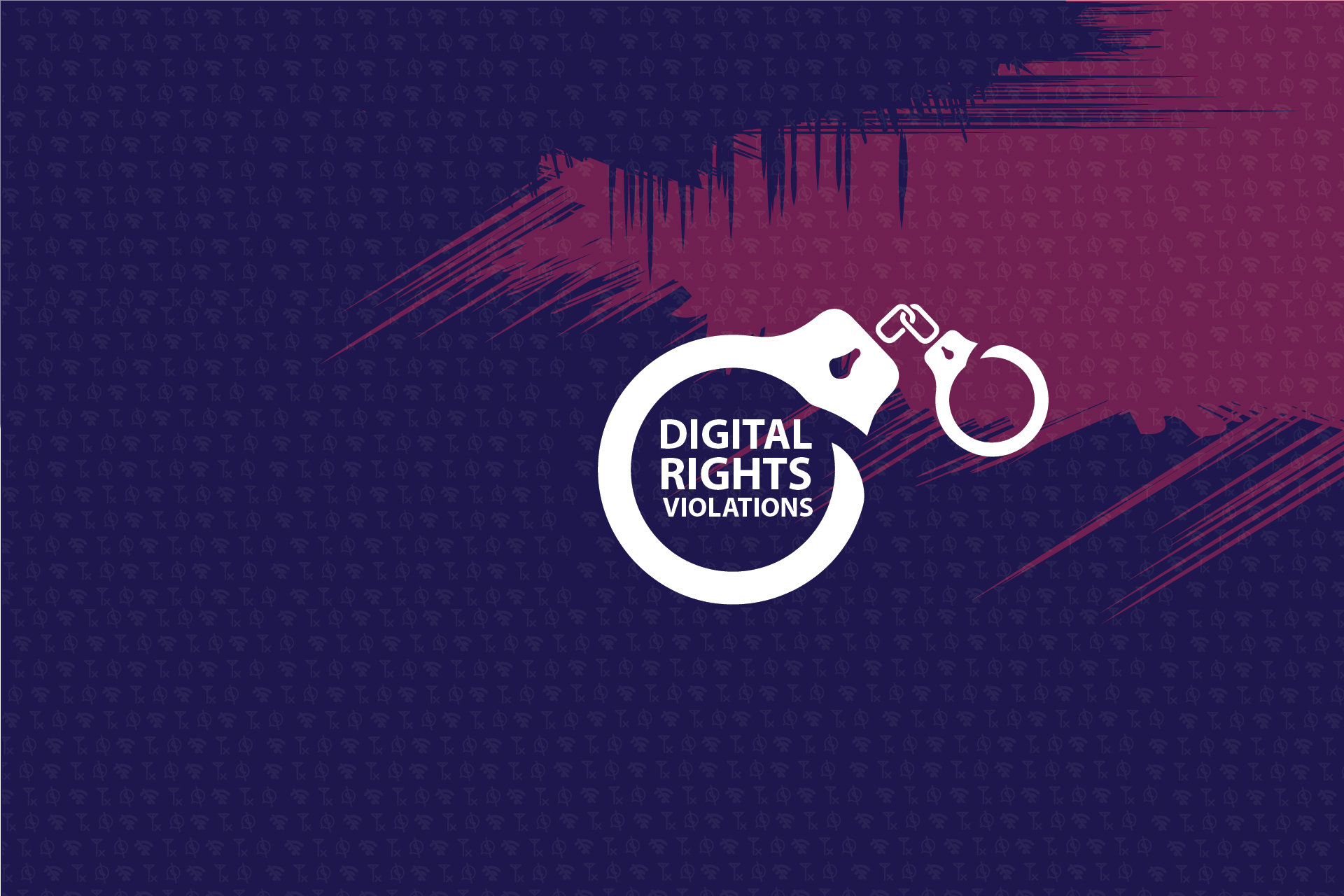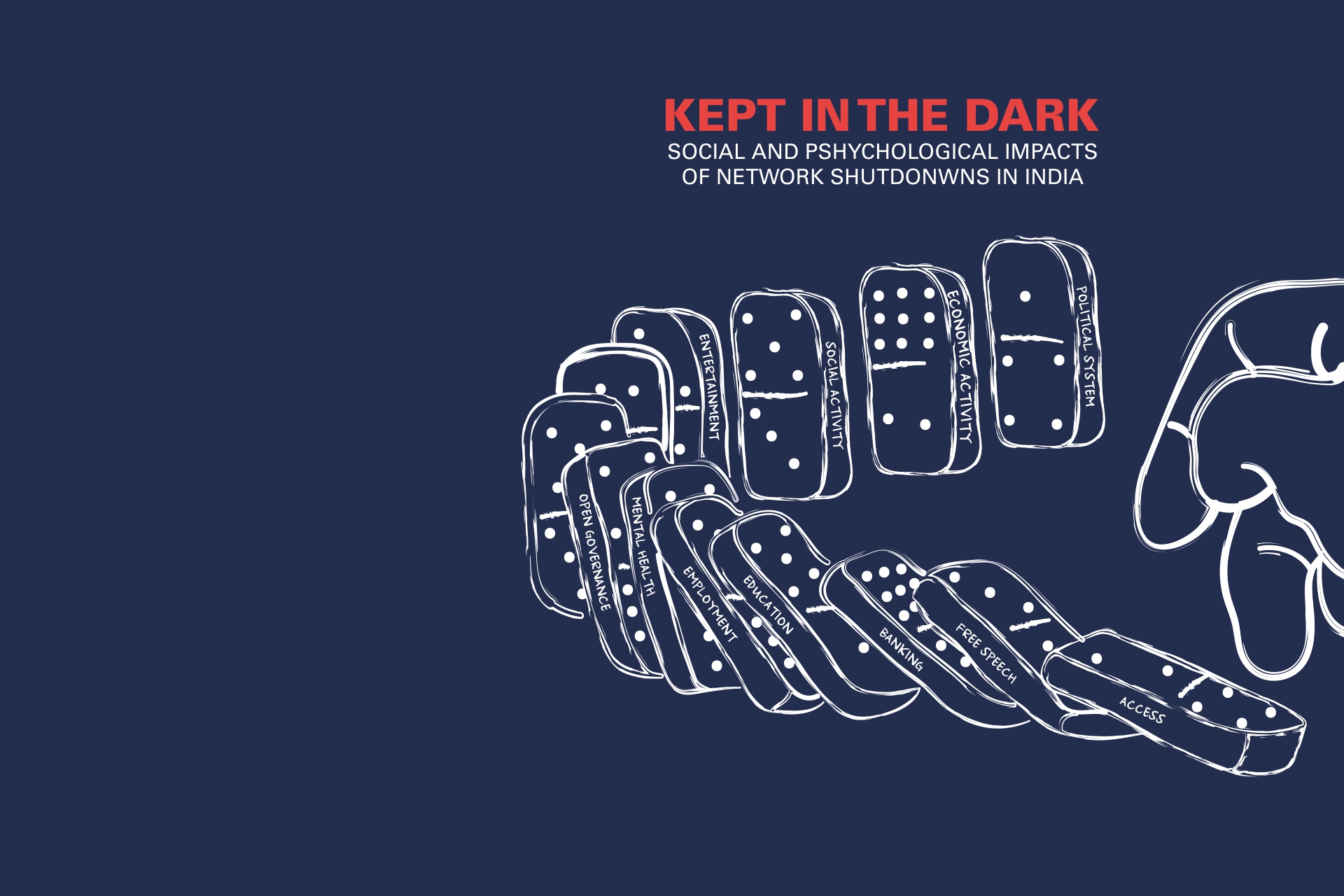Digital Empowerment Foundation is majorly concerned with the human rights, internet rights and making the internet an effective tool to access right to information in India. DEF believes that the internet plays a major role in accessing information and thus a tool for social and economic development. The “Internet Rights” is an initiative through which DEF is consistently making an effort to make Internet as a medium to reach the masses, to create even opportunities and linkages between haves and have-nots so that the grassroots knowledge reaches the economic prosperity and vice versa through information communication technology and digital media. Through its initiative “Internet Rights” , DEF is constantly making an effort to support and encourage internet as ‘a basic human right’.

Privacy in India in the Age of Big Data
In the age of big data, the right to privacy has become a pivotal issue as personal data is routinely collected and traded in the new economy.
Trends in Religion-Based Hate Speech
Balancing public order and religious harmony with the right to freedom of expression are particularly sensitive in many societies. Read More
DEF’s comments on Data protection in India
DEF responds to the white paper released by Srikrishna Committee on Data Protection
and asks for a robust law to protect the most vulnerable.
Read More. .
Digital Citizen Summit
Session on Internet Shutdowns
Organised By: DEF and SFLC.in
September 22nd, 12:00-13:00
DEF’s Position on Implications of Aadhaar in India
DEF’s stand on Aadhaar stems from the many incidents of social exclusion that Aadhaar has caused to those who need government subsidies the most.
Our stance on Net Neutrality
Net Neutrality is a universal concept where Telecom Service Provider as an access provider has no right to select services, applications and content that consumers want to access. It is consumer/user’s right to select services, applications and content that they want to access. It functions under the basic assumption that all data is created equal and that positive or negative discrimination of data of a certain type or from a particular provider or service cannot take place. The Telecom Regulatory… Read More
The Internet rights are human rights (IRHR) curriculum
The Internet rights are human rights (IRHR) is a series of training modules concerned with the relationship between human rights, ICTs and the internet. These modules are intended to help those who work on human rights and/or ICTs, and others with an interest in the issues, to understand ways in which the internet is affecting the enjoyment and protection of rights – now and in the future – and explore how these affect their work. These modules have been commissioned..Read More
“The most Indians today access internet via mobile phones and thus, formulating correct policies in terms of network neutrality is required. Even if we leave internet, even SMS is an important medium to connect and everyone is aware of the disastrous policies that have been adopted in past regarding SMS. A lot of legitimate marketing companies are suffering because they have to pay huge costs to send these SMSs. Similar policies have been imposed for blocking internet to stop the vertical access to the social media sites.”
Dr. Madan Rao, Author & Research Director, Your Story
“Use of Internet is universal and the urge to control it is as universal. It is more about citizens who are using the service via different mediums and thus they should have a stake in it. Again the knee jerk responses we see by the governments across the globe occur because their citizens have tasted freedom in the recent past only be it via Internet or any other medium. Different countries have their own ways of handling issues so it cannot be simply said that there is a trade off between cyber security.”
Mishi Choudhary, Director of International Practice, SFLC
“The fact that this right (Right to freedom of speech) is posing huge threats to our right to privacy is very true. Recently enough the govt. has been trying to address the issue by setting up the panels for cyber security and demanding content and clarifications from a number of companies. Also provisions are now being made to ensure that some part of internet infrastructure should be made by Indian manufacturers.”
Chinmayi Arun, Asst. Prof at National Law University in Delhi
“One of my current grave concern is where we are heading in terms of how governments interact with internet specifically what action and reactions we think going wrong, some steps are taken in the name of religion and some in the name of protecting culture and children etc. and the list goes on. There is always an excuse for any potential action plan over the same or any suitable policy by the government. My question is when will this stop? When you shut down internet nobody wins.”
Rajnesh Singh, Regional Director, Asia-Pacific Regional Bureau, ISOC
“RTI is a tedious process, however, the government has given timeline of receiving RTI status of 1 month but the process is not been followed by intermediaries who process the RTI applications. Thus, applicants wait for months long just to know the status of their RTI applications. There should be uniform policy within inside the government departments, organisations and agencies that entire information should be disseminated publicly.”
Subho Ray, President, IAMAI
“The ‘Right to Information’ was the first movement that brought thousands of people together in shaping the Right to Information Act. 1% population of the country definitely uses RTI for their basic purposes. The question is that how to link internet with RTI effectively and synergize the use of RTI among rural citizens. Information in the public domain has always raised issues and Internet can be instrumental to curb the media sensation.”
Aruna Roy, Mazdoor Kisan Shakti Sangathan (MKSS)
Internet Shutdowns in India
An Internet shutdown takes place when Internet Service Providers are instructed to snap 2G, 3G, GPRS, lease line /or broadband services in specified regions by the State. Since 2012, India has witnessed 116 internet shutdowns according to our research. These shutdowns are undemocratic and violate freedom of expression, association; and assembly. This map, a work in progress, aims to visually explore the shutdowns and provide sources for the collected information.








